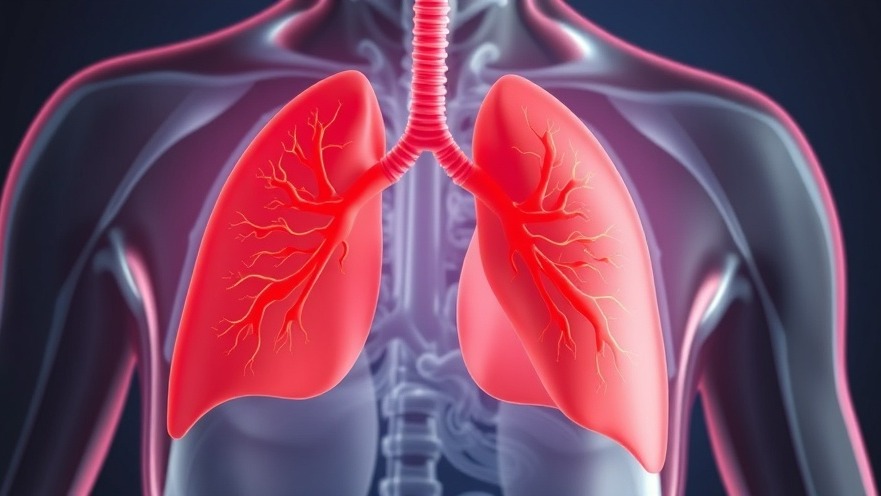
New Treatments Show Promise for COPD Management
Chronic Obstructive Pulmonary Disease (COPD) has long been a challenge for patients, especially those also living with type 2 diabetes. Recently, exciting advancements in treatment have emerged that could transform how doctors address both conditions simultaneously. Two types of medications, Sodium-Glucose Cotransporter-2 (SGLT2) inhibitors and Glucagon-like Peptide-1 (GLP-1) receptor agonists, are reportedly able to reduce the risk of COPD exacerbations. This is especially noteworthy compared to traditional treatments like Dipeptidyl Peptidase-4 (DPP-4) inhibitors.
Understanding the Impact of SGLT2 and GLP-1 Medications
The study, spearheaded by a team of researchers from Brigham and Women’s Hospital, analyzed how these newer drugs can provide dual benefits—managing diabetes while also alleviating COPD symptoms. Results indicated that the use of SGLT2 inhibitors and GLP-1s led to a reduction in the risk of moderate or severe COPD exacerbations. This reduction ranged impressively from 14% to 29% compared to DPP-4 inhibitors. These findings are essential because they validate what many practitioners have instinctively felt: new treatments can indeed offer more comprehensive care.
Why Weight Loss Matters in COPD Treatment
One key explanation for the effectiveness of SGLT2 inhibitors may lie in their role in promoting weight loss. For individuals with COPD, managing weight is crucial. Excess weight can add additional strain on the respiratory system, exacerbating symptoms. Thus, the glucosuria effect of SGLT2 inhibitors, which also helps patients lose weight, can lead to enhanced lung function and an overall better quality of life.
Historical Context: The Evolution of COPD Treatments
Historically, treatment for COPD focused primarily on symptom relief through bronchodilators and corticosteroids. However, with the advent of new classes of medication, the landscape is changing. The growing body of research supporting the role of SGLT2s and GLP-1s in managing COPD illustrates a progressive understanding of the disease's complexities and the interconnectedness of comorbidities such as diabetes.
Future Insights: A Shift Towards Integrated Patient Care
As these new treatments gain traction, there’s an exciting opportunity for concierge medical practices to position themselves as leaders in patient-focused care. Practices that incorporate comprehensive treatment plans addressing multiple conditions simultaneously may differentiate themselves in what is becoming a crowded marketplace.
Taking Action: Leveraging Advancements for Practice Growth
For concierge medical practice owners, staying ahead of emerging treatment options isn't just beneficial; it's vital for business growth. Educating patients about the advantages of these new therapies can foster trust and encourage patient retention. By harnessing recent findings and effectively communicating their value, practices can stand out as top players in local healthcare.
 Add Row
Add Row  Add
Add 




Write A Comment